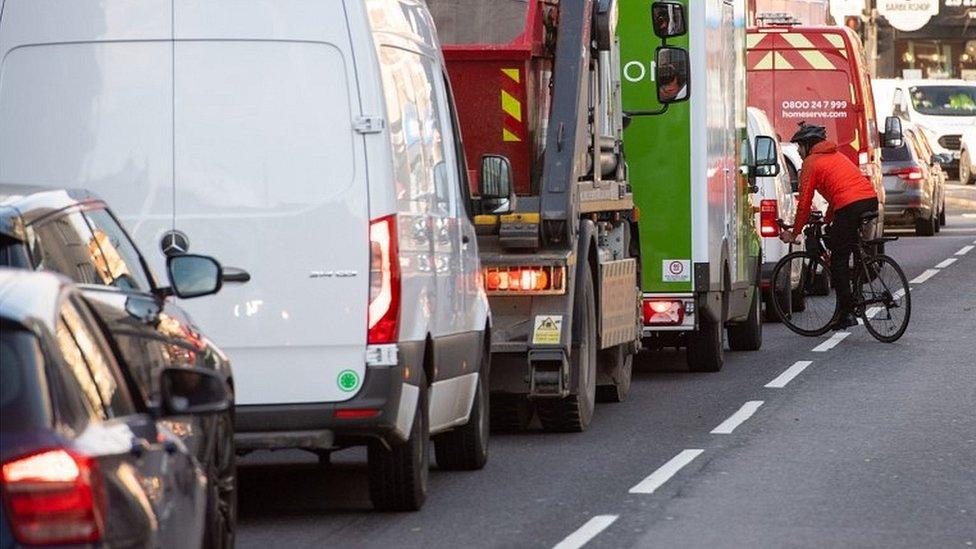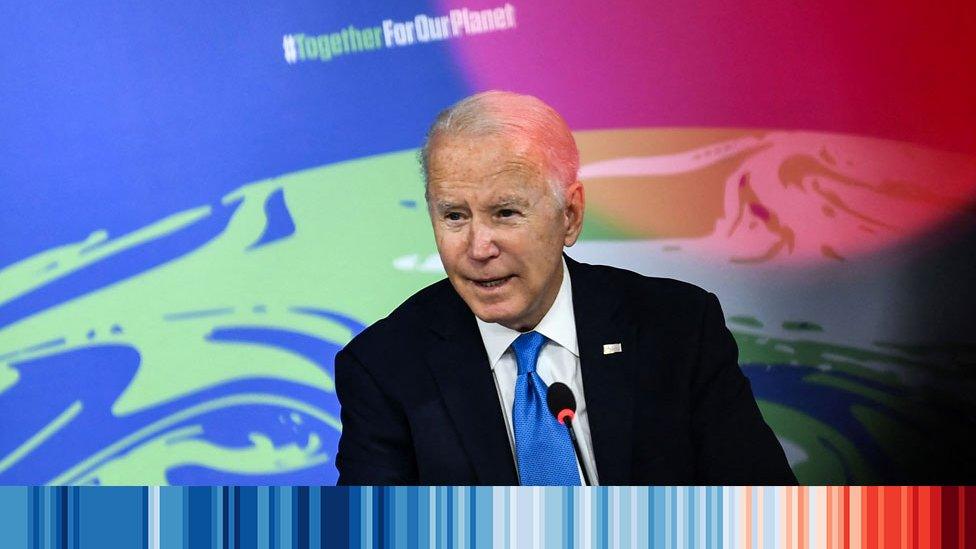Environment Bill: MPs reject tougher air quality target
- Published
- comments

MPs have voted against bringing in a tougher air quality target, after it was introduced to the Environment Bill by the House of Lords.
Peers had amended the legislation to set a limit on particle pollution which would be at least as strict as World Health Organisation guidance, by 2030.
But the Commons rejected this, in line with the government's wishes.
The bill, first published in 2019, is currently going back and forth between the two Houses of Parliament.
The process - known as "ping-pong" - will continue until both can agree on the final measures to be included, after which it can finally enter law.
The Commons votes come just a few days ahead of the COP26 global climate summit beginning in Glasgow on 31 October, with ministers keen to get the bill through Parliament before then.
MPs also rejected an amendment added by the Lords which would place a duty on water companies to reduce raw sewage discharges into rivers.
The government says the bill will improve air and water quality, tackle plastic pollution, restore wildlife, and protect the climate. Some of its measures apply only in England, or in England and Wales, but there are a number of UK-wide provisions.
The bill would also set up a watchdog - the Office for Environmental Protection - to monitor progress on improving the environment.
The Commons voted to remove a Lords amendment designed to guarantee that body's independence, but MPs did agree to a proposal to allow charges to be levied on all single-use items, rather than just those made of plastic.

COP26 climate summit - The basics
Climate change is one of the world's most pressing problems. Governments must promise more ambitious cuts in warming gases if we are to prevent greater global temperature rises.
The summit in Glasgow is where change could happen. You need to watch for the promises made by the world's biggest polluters, like the US and China, and whether poorer countries are getting the support they need.
All our lives will change. Decisions made here could impact our jobs, how we heat our homes, what we eat and how we travel

Beccy Speight, chief executive of the RSPB, accused the government of "falling short of its pledge to leave the natural environment in a better state than it inherited it".
And campaign group Surfers Against Sewage said it was "astonishing that, in this critical decade for the environment, the government is opting out of amendments designed to better protect the planet and all its precious inhabitants".
But a Department for the Environment, Food and Rural Affairs spokesperson said the "landmark" bill would "transform how we protect our natural environment, make better use of our resources and clean up our air and water."
"It is vital that the bill now completes its passage into law as soon as possible, so we can meet our commitment of leaving the environment in a better state for future generations," they added.

SHOULD ONE ORGANISATION HAVE SO MUCH INFLUENCE?: Stephen Nolan investigates the power of Stonewall
THE AWARD FOR MENDING THE PLANET: What is the Earthshot Prize?

Related topics
- Published19 October 2021

- Published17 September 2021
- Published15 November 2021
